Lesson 2: The development path in Vietnam is correct and timely.
Although socialism temporarily fell into decline after the Soviet Union and Eastern European countries abandoned the socialist regime, the Communist Party of Vietnam remained loyal and steadfast to Marxism-Leninism, creatively applying it to Vietnam's conditions and circumstances to continue the country's development towards socialism and has achieved many very important achievements.
The inevitable path of the Vietnamese revolution
In the article “Some theoretical and practical issues on socialism and the path to socialism in Vietnam”, General Secretary Nguyen Phu Trong affirmed: “Right from its inception and throughout the revolutionary struggle, the Communist Party of Vietnam has always affirmed: Socialism is the goal and ideal of the Communist Party and the Vietnamese people; advancing to socialism is an objective requirement and the inevitable path of the Vietnamese revolution”.
The path to socialism in Vietnam was discovered by leader Nguyen Ai Quoc more than a century ago when he came across Lenin's Theses on Colonial Peoples. In 1923, Nguyen Ai Quoc went to the Soviet Union - the first socialist state in the world - and directly learned the ideology of the October Revolution in Russia in 1917.
He commented: “Like the brilliant sun, the October Revolution shone across the five continents, awakening millions and millions of oppressed and exploited people on earth to rise up and liberate themselves. In human history, there has never been a revolution with such great and profound significance” (1).

Illustration: tuyengiao.vn
On the basis of creatively applying Marxism-Leninism and the socialist ideology of the Russian October Revolution to the specific conditions of Vietnam, in 1927, Nguyen Ai Quoc published the work "The Revolutionary Path" - a theoretical textbook to train the first communist soldiers, creating the premise for organizing the Conference to establish the Communist Party of Vietnam on February 3, 1930. The conference adopted the Party's Platform, Political Platform and Brief Statutes.
These are the first documents of extremely important significance in determining the basic strategic and tactical lines of the Vietnamese revolution and the principles, goals, organizational and operational principles of the Communist Party of Vietnam. After the August Revolution in 1945 successfully established the Democratic Republic of Vietnam (now the Socialist Republic of Vietnam), the Party Platform was adopted at the Second National Congress of the Party (1951) defining the task of completing the cause of national liberation, abolishing the feudal regime, developing the people's democracy, and advancing to socialism.
Implementing the Party Platform, the cause of building socialism in the North was an extremely important factor in deciding our country's victory in the struggle to protect the North, liberate the South and unify the country in 1975.
The choice is in line with the development trend of history.
In the 1980s, the world situation underwent profound economic and political changes. In particular, the Communist Party of the Soviet Union carried out reforms. Based on the sharp and clear-sighted assessment that the reforms in the Soviet Union went against the basic principles of Marxism-Leninism on socialism, the 6th National Congress of the Party (1986) passed a resolution of historical significance on the transitional period of development along the path to socialism in Vietnam.
The renovation policy of our Party set out at the 6th Congress is the creative application and development of Marxism-Leninism to the specific conditions of Vietnam, specifically Lenin's new economic policy. Accordingly, our Party acknowledges the objective existence of a multi-sector commodity economy; inherits and applies achievements in economic management according to the market economy mechanism; accepts the intertwined existence of state, collective and private ownership forms; and cares for the vital interests of workers.
At the same time, our Party decided to implement an open-door policy and international integration, with the policy that Vietnam is a friend of all countries, regardless of political and social regimes.
The 7th National Congress of the Party (1991) adopted the Platform for National Construction in the Transitional Period to Socialism. The Platform stated: “We must firmly grasp, creatively apply and contribute to the development of Marxism-Leninism and Ho Chi Minh Thought, constantly enrich our intelligence, political capacity and organizational capacity to be able to solve problems posed by revolutionary practice. All Party guidelines and policies must originate from reality and respect objective laws. We must prevent and combat major risks: mistakes in guidelines, bureaucracy and degeneration and corruption of cadres and Party members”. The political platform is not only of historical significance to the cause of innovation in our country but also to the world revolutionary movement.
At the 11th National Congress of the Party (2011), the Platform for National Construction in the Transitional Period to Socialism (supplemented and developed) once again affirmed: "Going forward to socialism is the aspiration of our people, the right choice of the Communist Party of Vietnam and President Ho Chi Minh, in line with the development trend of history".
The Political Report of the 11th Party Central Committee at the 12th National Party Congress (2016) summarized 30 years of innovation and stated: "Innovation is an important historical period in the development of our country, marking the maturity in all aspects of our Party, State and people, having revolutionary stature and significance, a process of profound, comprehensive and thorough transformation, a great cause of the entire Party, the entire people and the entire army for the goal of a rich people, a strong country, democracy, fairness and civilization".
The Political Report of the 12th Party Central Committee at the 13th National Congress of the Party (2021) stated: “Looking back at 35 years of implementing the renovation process, 30 years of implementing the Platform for national construction in the transitional period to socialism, the theory on the renovation policy, socialism and the path to socialism in Vietnam has been increasingly perfected and gradually realized”; at the same time, it affirmed: “Our country has never had such a foundation, potential, position and international prestige as today. This is a source of pride, a driving force, an important resource, and a belief for our entire Party, people and army to overcome all difficulties and challenges, continue to firmly step on the path of comprehensive and synchronous renovation; and develop the country rapidly and sustainably”.
The achievements of national innovation are vivid proof.
Vietnam's achievements after nearly 40 years of renovation have been confirmed by "telling" figures. Before renovation, Vietnam was a poor country, severely devastated by war, with a severe socio-economic crisis and people's lives being extremely difficult. Thanks to the implementation of the renovation policy, the Gross Domestic Product (GDP) in 2020 reached 342.7 billion USD, making our country the 4th largest economy in the Association of Southeast Asian Nations (ASEAN). Per capita income increased about 17 times, reaching 3,512 USD.
From a country with chronic food shortages, Vietnam has now become the world's leading food exporter. Vietnam considers economic development to go hand in hand with socio-cultural development, implementing social progress and equity in each development policy. The average annual poverty rate has decreased by about 1.5%; from 58% in 1993 to less than 3% in 2020(2).
With the correct foreign policy under the leadership of the Party, Vietnam has proactively and actively integrated into the world comprehensively and deeply, multilateralized and diversified international relations; been a friend, a reliable partner and an active and responsible member of the international community. Our country has established diplomatic relations with about 190 member countries of the United Nations. The Communist Party of Vietnam has established foreign relations with 254 political parties in 114 countries.
To date, more than 70 countries have recognized Vietnam as a market economy, including Vietnam's major trading partners who have signed 15 regional and bilateral Free Trade Agreements (FTAs). The FTAs that Vietnam participates in cover about 60 economies with a total GDP accounting for nearly 90% of the world's GDP, including 15 G20 member countries and 9/10 of Vietnam's largest economic and trading partners are in the three largest economic centers in the world: North America, Western Europe and East Asia.
More than 30 years ago, in 1992, comrade Nguyen Phu Trong, in his capacity as Editor-in-Chief of the Communist Magazine, published an article entitled “Why did the Communist Party of the Soviet Union collapse?” in which he stated that the failure of socialism in the Soviet Union was only temporary, and that the objective law that no one could resist was that socialism would negate and replace capitalism.
Nearly 30 years later, in 2021, in the article "Some theoretical and practical issues on socialism and the path to socialism in Vietnam", General Secretary Nguyen Phu Trong raised the issue: "Previously, when the Soviet Union and the world socialist system still existed, the issue of advancing to socialism in Vietnam seemed to be unquestionable, it was tacitly considered to have been affirmed. But since the collapse of the socialist model in the Soviet Union and many Eastern European countries, the world revolution fell into recession, the issue of advancing to socialism was raised again and became the focus of all discussions, even fierce debates. Anti-communist forces and political opportunists were delighted and joyful, taking advantage of the opportunity to distort and sabotage. In the revolutionary ranks, there were also pessimists, wavering, doubting the correctness and science of socialism, attributing the cause of the collapse of the Soviet Union and some Eastern European socialist countries to the mistakes of Marxism-Leninism and the choice of the path of building socialism. From there, they believe that we have chosen the wrong path, and need to take another path. Some people even join in with hostile, attacking, and refuting arguments about socialism, and one-sidedly praising capitalism. Some people even repent for the time when they believed in Marxism-Leninism and the socialist path! Is that really the case? Is it true that capitalism, even in old capitalist countries, is still developing well today? Has our Vietnam chosen the wrong path?
With scientific, sharp and highly convincing arguments, General Secretary Nguyen Phu Trong affirmed that, since its founding, our Party has always been loyal, steadfast and creatively applied Marxism-Leninism to the specific conditions of Vietnam to bring our country to continue developing towards socialism in accordance with the inevitable trend of the times.
(continued)
Ta Ngoc (According to qdnd.vn)
-----------------------------
(1) Ho Chi Minh Complete Works, National Political Publishing House - Truth, Hanoi, 1980, volume 12, p.461
(2) “Great achievements after nearly 40 years of national renovation”; https://tuyengiao.vn/thoi-su/nhung-thanh-tuu-to-lon-sau-gan-40-nam-doi-moi-dat-nuoc-146363, September 13, 2023
Source


![[Photo] General Secretary To Lam works with the Standing Committee of Quang Binh and Quang Tri Provincial Party Committees](https://vphoto.vietnam.vn/thumb/1200x675/vietnam/resource/IMAGE/2025/6/25/6acdc70e139d44beaef4133fefbe2c7f)




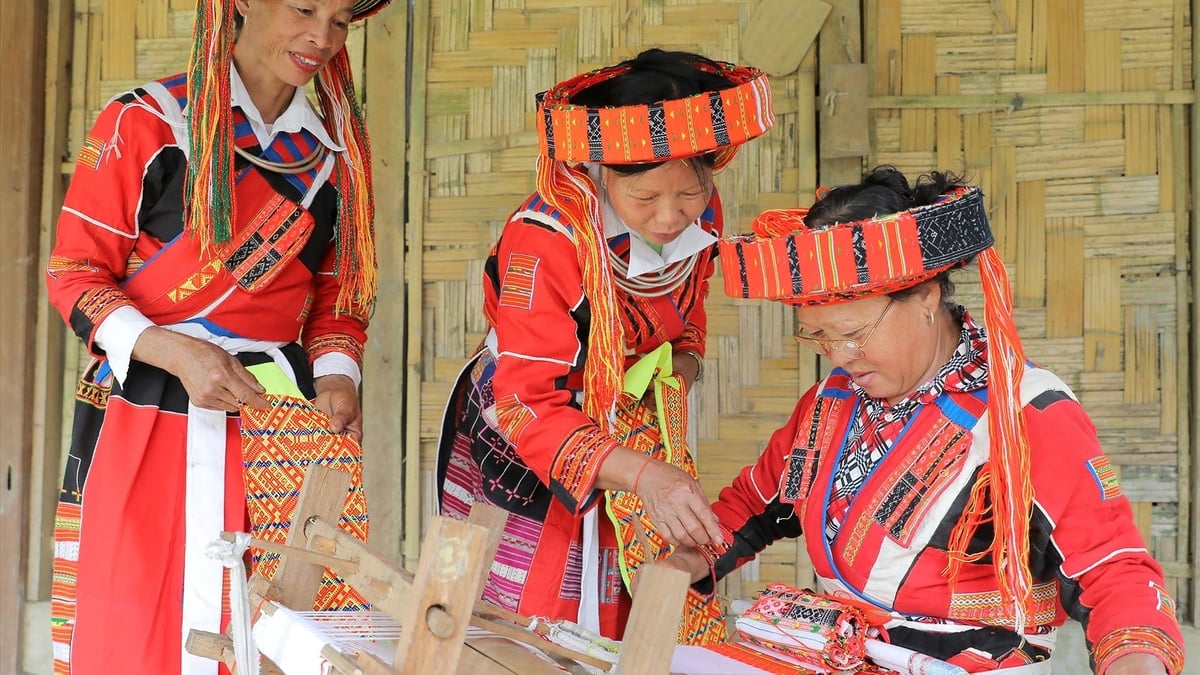






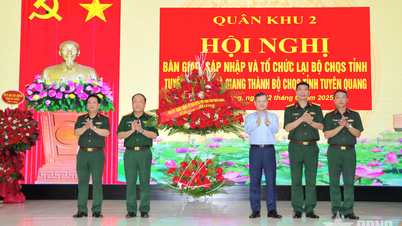

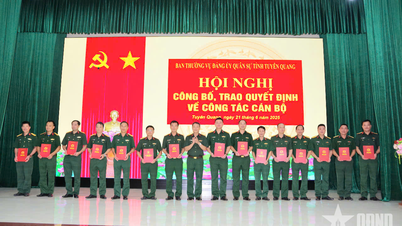


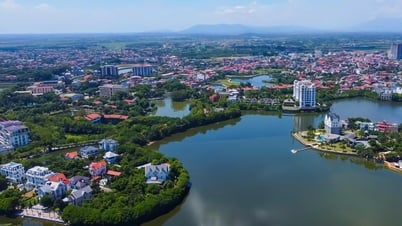


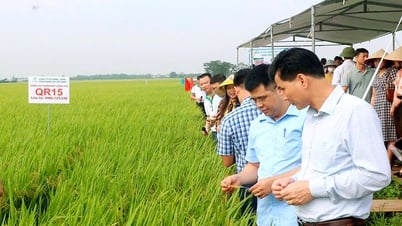





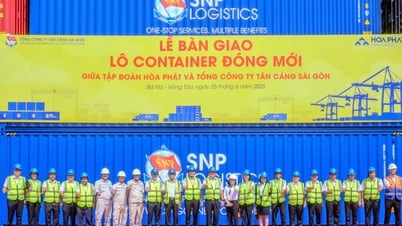
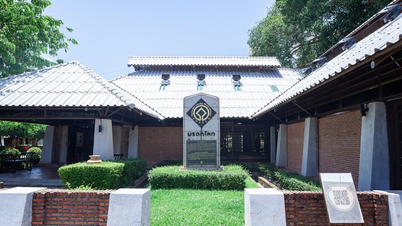
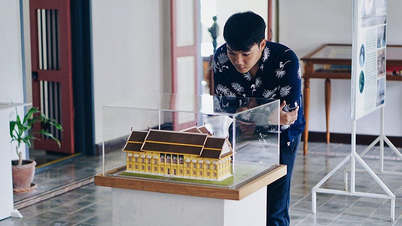




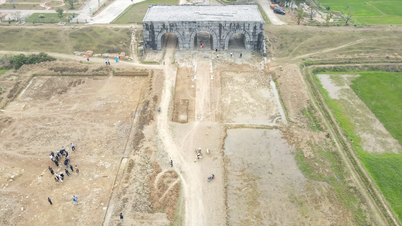





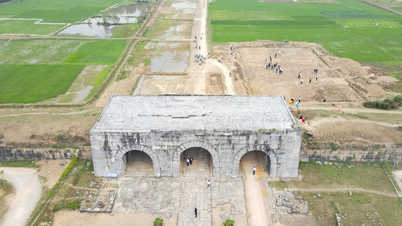


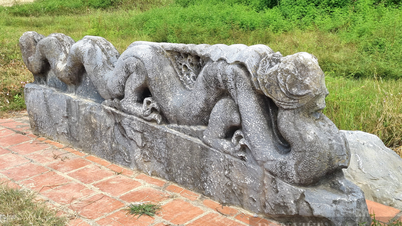


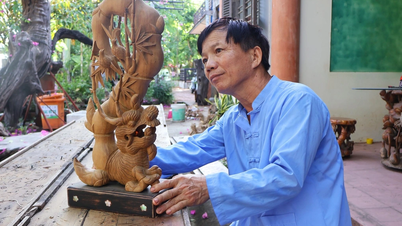











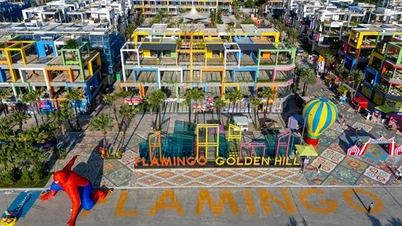






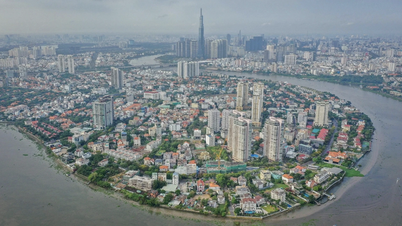











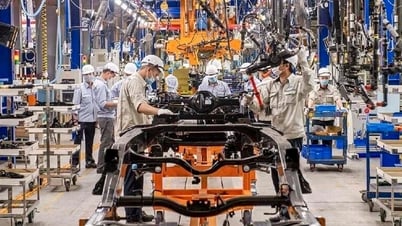

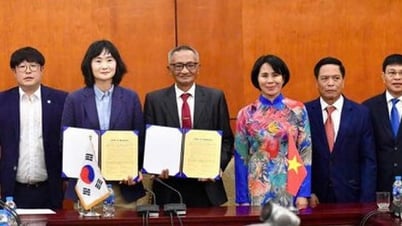



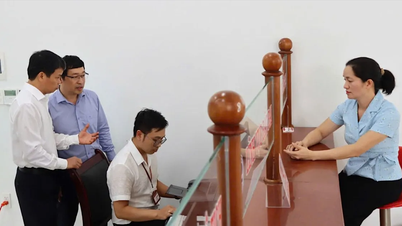
























Comment (0)